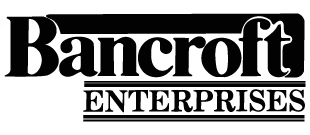Writing a Sales Letter
The headline is the first information a potential consumer reads in a sales letter, so give some thought as to what it will include. What is the benefit of using the product or service? For example, an appropriate heading for a business sales letter could read, "48-Hour Turnaround or It's On Us." The heading is short and to the point. Subheadings inform the reader of the purpose, or selling point, of the sales letter. For the reader who glances through the letter to decide whether or not it's worth the time, subheadings provide enough information to encourage continued reading.
The first paragraph has to convince the reader to finish reading the entire sales letter. The first paragraph needs to answer the age-old consumer question "what's in it for me?" The trick is to answer "what's in it for me" and make it short and to the point. For example, a good offer for a parent could read, "For $19.95 You Can Choose Between Three Photo Packages, Each Valued at $29.95." Then, at the end of the sales letter remind the reader about the previous offer and include added incentive, for example, "Order a Second Photo Package for $9.95." Ordering the second photo package is a call to action for the reader.
The message follows the opening heading, subheadings and the first paragraph to provide detailed information about the offered product or service. Incorporate highlighted words, whether underlined, italicized or bold-faced, to emphasize specific selling points and consumer benefits. The consumer needs to know the business is credible, so be specific and avoid fluff-filled statements such as "Satisfaction Guaranteed," instead use, "Guaranteed for Six Months or Receive a Brand New Printer." Six months is more credible than "Satisfaction Guaranteed," which is vague and inconclusive.
Consumer testimonials are one of the most effective selling points in a sales letter. Consumers want to read about other consumers who are satisfied with this product or service, or in other words, "nothing sells more than success." Ask previous consumers to provide information or to complete a questionnaire about the business. Request a release to use the information in the sales letter or other promotional pieces.
Sales letters can be one to eight pages in length, depending on the amount of information. There is no right page amount, so length should be based on the amount of interest in the product or service. Use a 12-point font in a readable typeface, such as Times New Roman or Arial. Address the consumer in name, such as "Ms. Brown," or based on her role, such as "Dear Client" or "Dear Friend." Handwriting the address and using a stamp increases the readership, but using mailing labels is acceptable. Go with what works, and review the procedure with each letter you produce.
